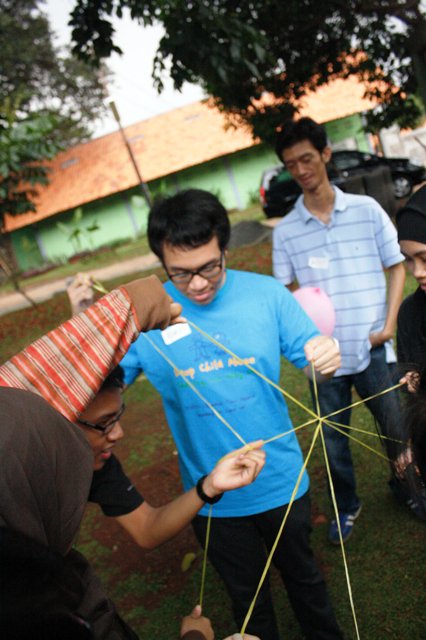First, we discussed about why there is a need for teaching social innovation now. They concluded that at least there are three forces in which happened in school and outside which encourage this. First, simultaneously students become more powerful than ever (with the support of technology, media, organizations, etc) which create greater possibility and opportunity to do this (untapped possibilities). Second, many students have not get the opportunity to learn the first. Thirst, the natural continuation (such as more pressing problems) make this learning make more sense now.
Second, we discussed about what are missing from education system now. They see that trend of students drop out from school to pursue their own interest speaks clearly that market demands more from education (schooling). So how can we embrace this? Create things that before we ”certified” students that they are ready to enter ”the world”. Additionally, some core components in lessons also missed in many schools, such as: teaching empathy, compassion, problem solving, social intelligence, global citizenship, resilience, self reflection, among others. Third, we discussed about what kind of methods should be given when we teach social innovation. Based on their diversed experiences, they highlighted several key points. First, it has to have balance proprotion between knowledge and direct experience (inside and outside of classroom). Second, it is important to apply empathy and respect (not only as concept), but also on how we interact with students. Third, all stakeholders (students, teachers, parents, etc) should give and recive feedback among each other, understand how something can be failed, and open up to new opportunities. Fourth, we need to provide foundations on key skills set, then engage students in a dynamic way.
0 Comments
Leave a Reply. |
Archives
November 2014
Categories
All
|

 RSS Feed
RSS Feed